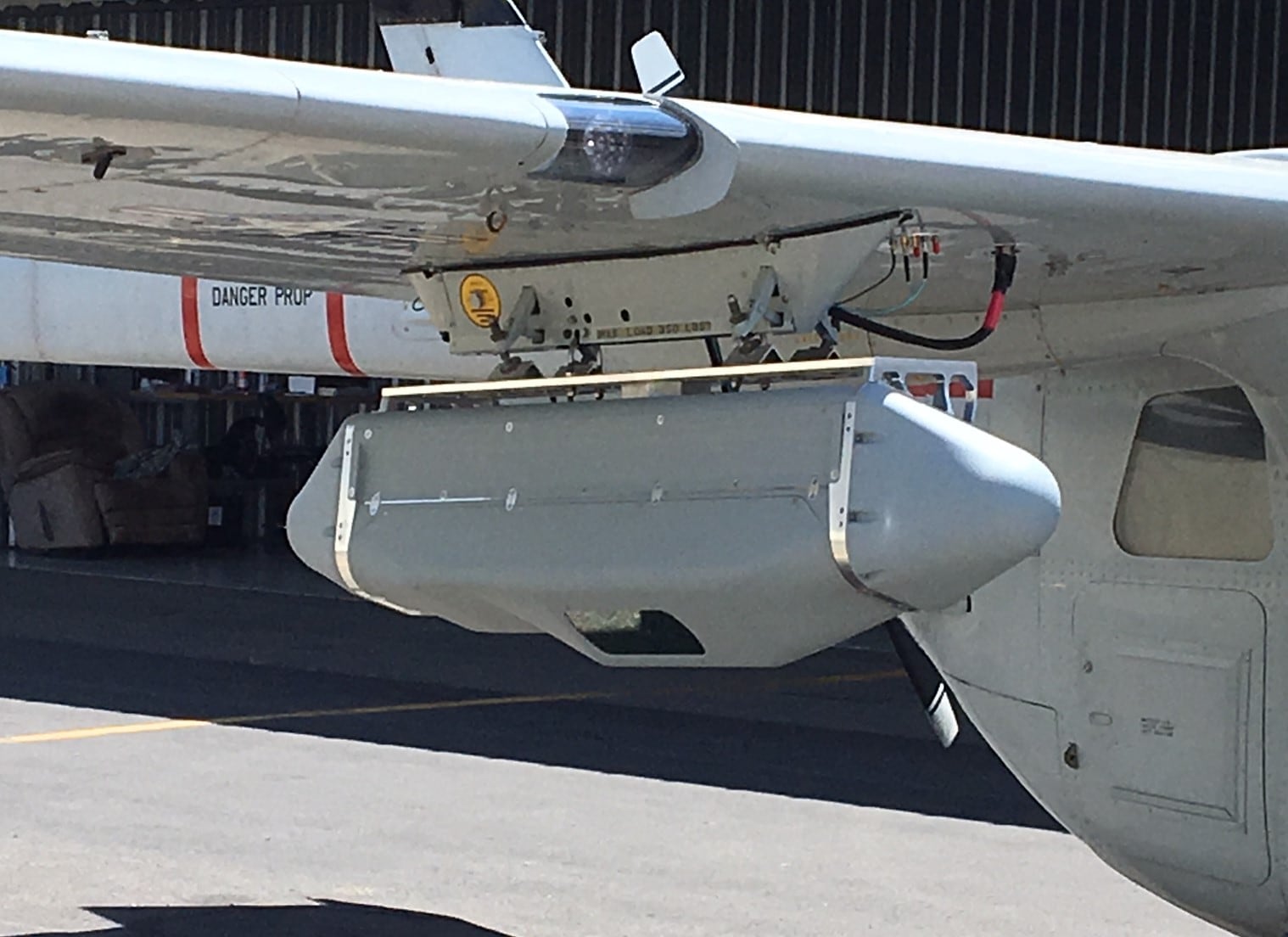WASHINGTON — A new wide-area motion imagery sensor could make the R1-21A Blackjack an even more powerful tool for the war fighter, allowing the small UAV to simultaneously monitor 5 square miles.
Logos Technologies announced July 28 that it was awarded a $6.7 million contract to deliver two wide-area motion imagery (WAMI) sensor prototypes to U.S. Naval Air Systems Command in September. Dubbed Cardcounter by the Navy, the 28-pound infrared sensor is adapted from the company’s commercial BlackKite product.
Blackjacks are used by the Navy to provide intelligence, surveillance and reconnaissance coverage day or night. Able to launch without a runway, the Blackjack has a range of about 50 kilometers and can stay in the air for up to 16 hours. Blackjack drones already host a number of sophisticated sensors, including full-motion video, infrared marker, laser range finder and a communications relay package, but Cardcounter offers a new capability: the ability to view a city-sized area.
“What really makes WAMI special is the fact that it can monitor all of the movement — both dismount and vehicles — in a city-sized area. You can kind of think of it like live Google Earth with [digital video recorder] capability,” Doug Rombough, vice president for business development at Logos Technologies, told C4ISRNET. “Prior to WAMI, you had simply the full-motion video sensors; and obviously full-motion videos are awesome because they are very high resolution. They can zoom in on an area. The challenge with FMV is you’ve got that very narrow field of view, kind of like looking through a soda straw.”
Used together, WAMI and full-motion video allow operators to take in the big picture of what’s happening on the ground and zoom in on areas of interest. Cardcounter will be able to store six hours or more of that data for later analysis, but it will also be able to transmit portions of that imagery to users on the ground in real time.
Logos Technologies, a company that specializes in WAMI, has worked to miniaturize that capability, making it as lightweight as possible for any manned or unmanned aircraft.

“There are very few WAMI sensors that have been developed that can fly on unmanned aircraft,” said Rombough, noting that the only other one he knows of in use today is carried by the relatively massive MQ-9 Reaper. A Reaper has a wingspan of 66 feet. A Blackjack has a wingspan of 15.7 feet.
Flight testing of Cardcounter wrapped up July 31 in North Carolina, said Rombough. A demonstration of the new sensor for the U.S. government is slated for next summer, followed by a field-user evaluation.
“I will tell you that we are waiting on the next delivery order — they’ve already told us that they want to build an additional two for a total of four because they want to send four of them out on a [field-user evaluation],” Rombough said.
He added that the Army, Special Operations Command and the Air Force expressed interest in adapting the BlackKite/Cardcounter sensor for their platforms, and Logos Technologies could be demonstrating their sensors to SOCOM around the fall/winter time frame.
Nathan Strout covers space, unmanned and intelligence systems for C4ISRNET.








